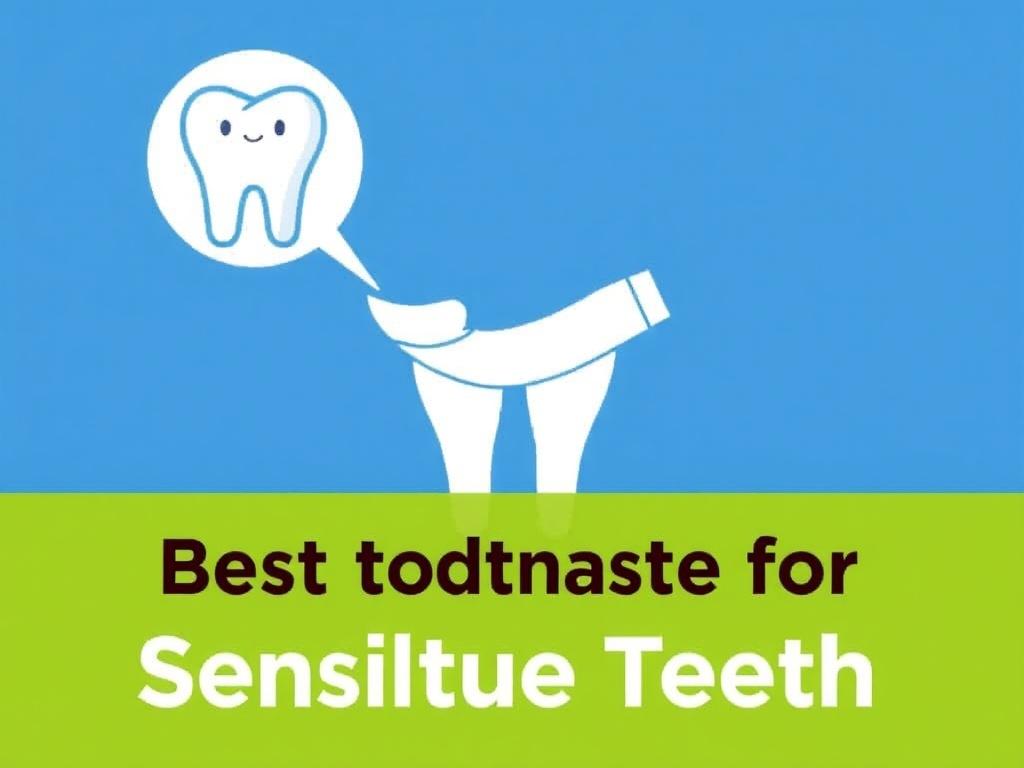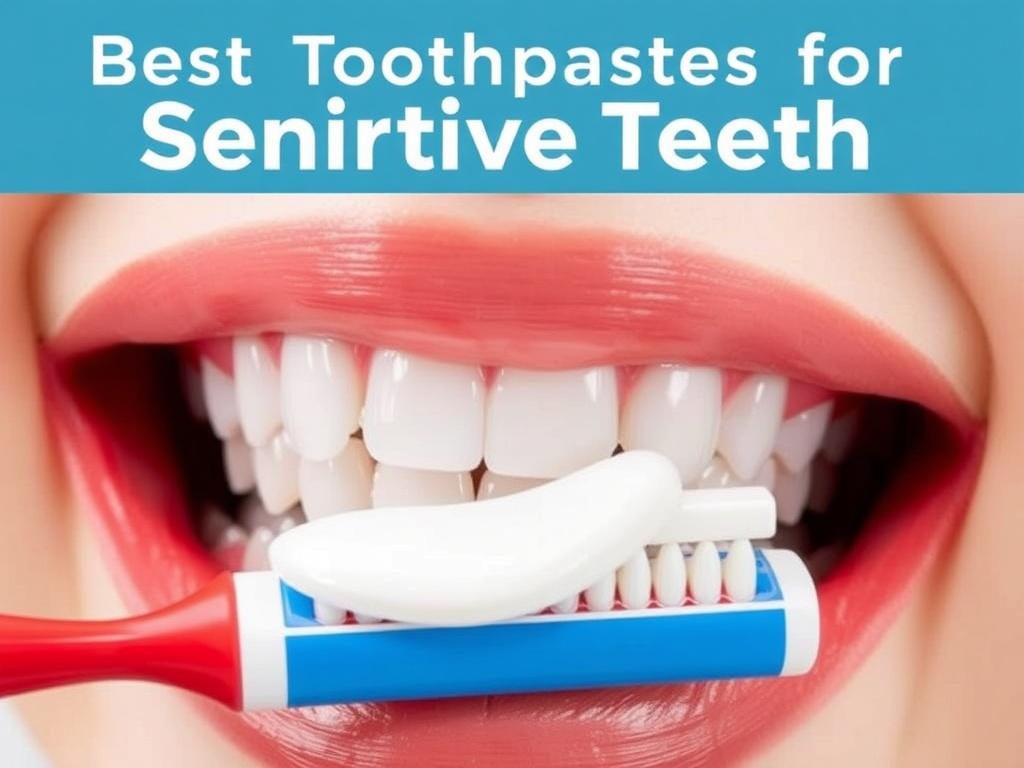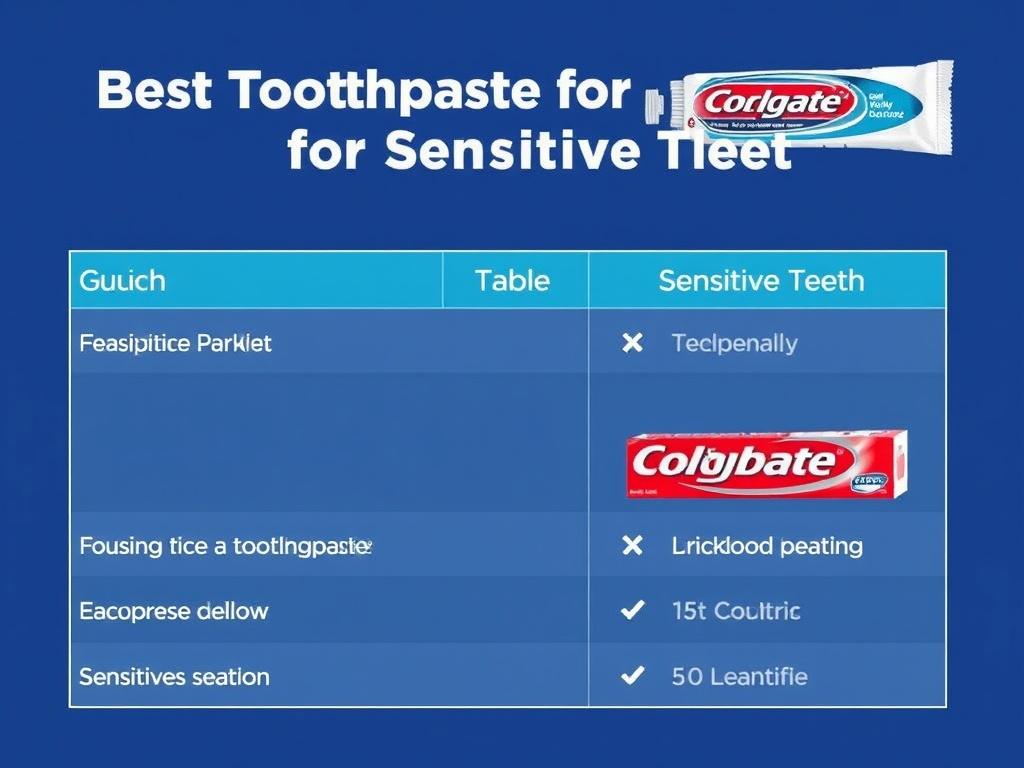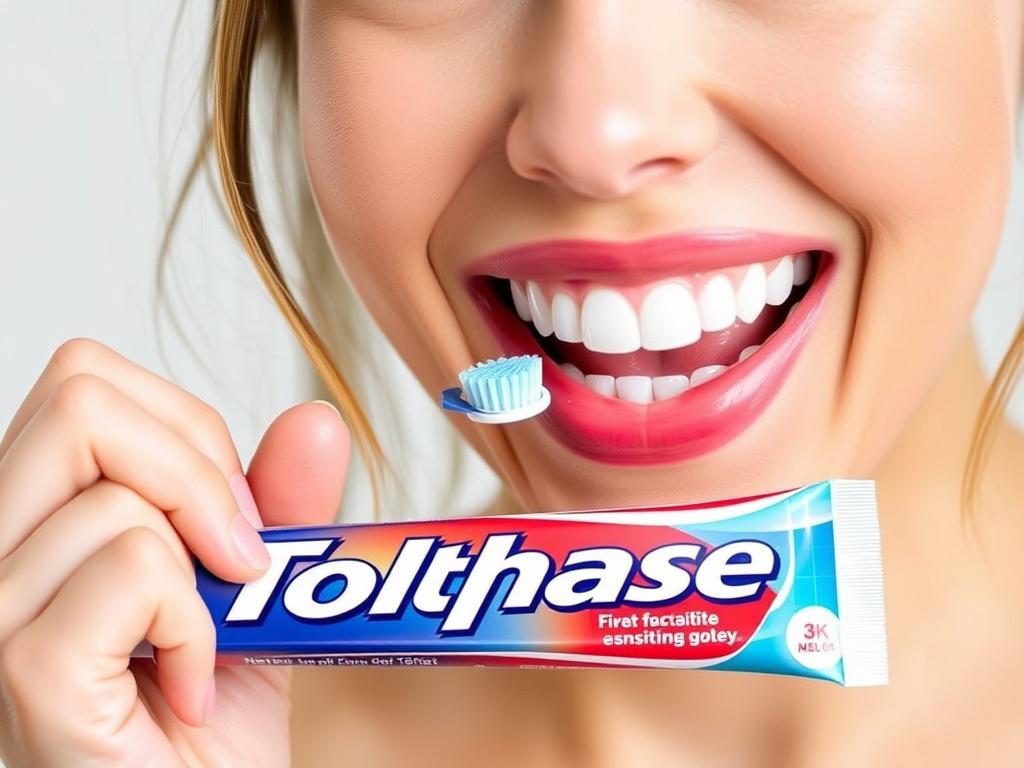If you’ve ever experienced a sudden jolt of pain when sipping hot coffee or biting into a cold ice cream, you’re not alone. Sensitive teeth can be a persistent nuisance, turning everyday pleasures into uncomfortable ordeals. Thankfully, the right toothpaste can make a world of difference. Choosing the best toothpaste for sensitive teeth is crucial to easing discomfort and protecting your smile for the long haul.
This comprehensive guide will walk you through everything you need to know about sensitive teeth, what ingredients to look for (and avoid), as well as the best toothpaste options currently available. Whether you’re just starting to experience sensitivity or have been dealing with it for years, this article will equip you with the knowledge to soothe your teeth effectively and regain your confidence.
Содержание
- 1 Understanding Tooth Sensitivity: What Causes It?
- 2 How Does Toothpaste for Sensitive Teeth Work?
- 3 Key Ingredients to Look for in Sensitive Teeth Toothpaste
- 4 Top 5 Best Toothpaste for Sensitive Teeth in 2024
- 5 How to Use Sensitive Teeth Toothpaste for Best Results
- 6 Other Tips to Prevent and Manage Tooth Sensitivity
- 7 Frequently Asked Questions About Sensitive Teeth and Toothpaste
- 8 Choosing Between a Specialist and Mainstream Sensitive Toothpaste
- 9 Myths and Misconceptions About Sensitive Toothpaste
- 10 Environmental and Health Considerations When Choosing Toothpaste
- 11 Summary Table: Quick Comparison of Best Toothpastes for Sensitive Teeth
- 12 Tips on Complementary Products to Use With Sensitive Toothpaste
- 13 When to See a Dentist for Sensitive Teeth
- 14 Building a Long-Term Strategy for Sensitive Teeth Care
Understanding Tooth Sensitivity: What Causes It?
Before jumping into recommendations for the best toothpaste for sensitive teeth, it helps to understand why tooth sensitivity happens. Essentially, tooth sensitivity occurs when the protective layer of enamel thins or gums recede, exposing the dentin underneath. The dentin contains microscopic tubules linked to the nerve endings inside the tooth. When exposed to hot, cold, acidic, or sweet stimuli, these tubules send sharp pain signals to your brain.
Common causes of tooth sensitivity include:
- Tooth decay or cavities
- Gum disease or gum recession
- Brushing too hard or using a hard-bristled toothbrush
- Teeth grinding or clenching
- Acidic foods and beverages
- Whitening treatments or dental procedures
- Cracked or chipped teeth
Understanding the root cause is important because while sensitive toothpaste can provide relief, addressing the underlying issue is key to long-term dental health.
How Does Toothpaste for Sensitive Teeth Work?

Specialized toothpaste for sensitive teeth employs a few key strategies to reduce discomfort:
- Blocking tubules: Many sensitive toothpaste formulas contain compounds that seal or plug the tiny tubules in the dentin, preventing stimulus from reaching the nerves.
- Desensitizing nerves: Some ingredients, like potassium nitrate, work by calming the nerve signals in the tooth, reducing the intensity of pain.
- Strengthening enamel: Fluoride and similar minerals help remineralize and rebuild enamel, offering long-term protection.
- Reducing inflammation: Certain ingredients may soothe gum irritation that contributes to sensitivity.
By incorporating these elements, the best toothpaste for sensitive teeth can both provide immediate relief and support healthier teeth over time.
Key Ingredients to Look for in Sensitive Teeth Toothpaste

Not all toothpastes are created equal, especially when it comes to sensitivity. Here are the main ingredients you want to check for when choosing your next tube:
| Ingredient | What It Does | Why It Helps Sensitivity |
|---|---|---|
| Potassium Nitrate | Calms nerve activity inside the tooth | Reduces pain signals sent to the brain |
| Stannous Fluoride | Protects enamel and fights bacteria | Seals dentin tubules and prevents decay |
| Sodium Fluoride | Strengthens enamel through remineralization | Helps build strong, resistant teeth |
| Arginine | Supports natural sealing of tubules with calcium | Aids in long-lasting sensitivity relief |
| Calcium Sodium Phosphosilicate (NovaMin) | Repairs enamel and blocks tubules with minerals | Encourages bioactive remineralization |
Avoid abrasive ingredients like silica or harsh detergents if your teeth are sensitive, as they can worsen discomfort over time.
Top 5 Best Toothpaste for Sensitive Teeth in 2024
Based on current reviews, ingredient formulations, and dentist recommendations, here are some of the best toothpaste options tailored for sensitive teeth:
| Brand & Product | Main Ingredients | Key Benefits | Price Range |
|---|---|---|---|
| Sensodyne Pronamel Gentle Whitening | Potassium Nitrate, Fluoride | Protects enamel, reduces sensitivity, gentle whitening | $$ |
| Colgate Sensitive Pro-Relief | Arginine, Calcium Carbonate | Seals dentin tubules, fast pain relief | $ |
| Crest Gum & Sensitivity | Stannous Fluoride | Fights sensitivity and gum problems | $$ |
| Burt’s Bees Sensitive Toothpaste | Natural ingredients, No Sodium Lauryl Sulfate (SLS) | Gentle on gums, reduces irritation and sensitivity | $$$ |
| Tom’s of Maine Rapid Relief Sensitive | Arnica, Potassium Nitrate | Natural ingredients, rapid sensitivity relief | $$ |
Each of these toothpastes offers unique benefits, so consider your specific needs — such as whitening, gum health, or preference for natural products — when making a choice.
How to Use Sensitive Teeth Toothpaste for Best Results
Using the best toothpaste for sensitive teeth is only part of the solution. How you use it matters just as much. Follow these tips to maximize relief and maintain oral health:
- Use twice daily: Brush your teeth morning and night to maintain a consistent protective layer.
- Gentle brushing technique: Use a soft-bristled toothbrush and avoid vigorous scrubbing, which can worsen sensitivity.
- Don’t rinse aggressively: After brushing, avoid rinsing your mouth with water immediately so the toothpaste can work longer.
- Floss regularly: Prevent gum disease and gum recession by flossing carefully and consistently.
- Avoid acidic foods: Limit sodas, citrus, and other acidic eats that erode enamel.
- Follow dentist’s advice: If sensitivity persists, schedule a dental checkup to rule out underlying issues.
Other Tips to Prevent and Manage Tooth Sensitivity
In addition to choosing the best toothpaste for sensitive teeth, consider these lifestyle and dental hygiene habits to keep sensitivity at bay:
- Use a soft-bristled toothbrush and replace it every 3 months
- Limit teeth whitening treatments and acidic mouthwashes
- Wear a mouthguard if you grind your teeth while sleeping
- Avoid excessive brushing pressure and aggressive flossing
- Eat a balanced diet rich in vitamins and low in sugary snacks
- Visit your dentist regularly for checkups and cleanings
The Role of Your Dentist in Managing Sensitive Teeth
While the best toothpaste for sensitive teeth can help significantly, ongoing pain may signal a deeper dental problem. Your dentist can provide professional treatments such as fluoride varnishes, dental sealants, or even bonding procedures to protect exposed areas. In some cases, root canal therapy or gum grafting might be necessary.
Don’t hesitate to share your symptoms and concerns during dental visits. A targeted treatment plan combined with the right toothpaste will deliver superior results and lasting comfort.
Frequently Asked Questions About Sensitive Teeth and Toothpaste
| Question | Answer |
|---|---|
| Can sensitive toothpaste whiten teeth? | Some sensitive toothpastes have mild whitening agents. They’re designed to be gentle while gradually removing surface stains without increasing sensitivity. |
| How long does it take to see results? | It typically takes 2-4 weeks of consistent use to notice a reduction in sensitivity, but some may feel relief sooner. |
| Is it safe to use sensitive toothpaste long term? | Yes, most are formulated for daily use over extended periods and are safe when used as directed. |
| Can sensitive toothpaste replace dental visits? | No, toothpaste helps with symptoms but cannot treat underlying dental problems. Regular dental checkups remain important. |
| Should children use sensitive toothpaste? | Consult your dentist first. Some sensitive toothpastes contain fluoride that may not be suitable for very young children. |
Choosing Between a Specialist and Mainstream Sensitive Toothpaste
You’ll find both prescription and over-the-counter toothpastes targeting sensitive teeth. Prescription options, often recommended by dentists, may contain higher concentrations of active ingredients for more severe sensitivity. Over-the-counter versions, such as Sensodyne or Colgate Sensitive, offer effective relief for most people with mild to moderate symptoms.
If you’re uncertain which toothpaste is best suited for you, start with trusted mainstream brands and monitor your symptoms. If sensitivity worsens or doesn’t improve, ask your dentist about prescription options or additional treatments.
Myths and Misconceptions About Sensitive Toothpaste
Sifting through dental health information can be confusing. Here are some common myths about the best toothpaste for sensitive teeth to clarify:
- Myth: Whitening toothpaste always causes sensitivity.
- Fact: Some whitening toothpastes now include desensitizing agents and are formulated for sensitive teeth.
- Myth: Only expensive toothpastes work for sensitivity.
- Fact: Many affordable options offer excellent relief — price doesn’t always equate to effectiveness.
- Myth: Sensitive toothpaste works immediately.
- Fact: Consistent use over several weeks is usually necessary for noticeable improvement.
- Myth: If one toothpaste doesn’t work, none will.
- Fact: Different active ingredients work better for different people, so trying various options can help find the best fit.
Environmental and Health Considerations When Choosing Toothpaste
More people today are considering the impact of personal care products on the environment and overall health. If you prefer natural or eco-friendly products for sensitive teeth, look for these qualities:
- Free from sodium lauryl sulfate (SLS), which can irritate gums
- Contains naturally sourced desensitizing ingredients
- Uses recyclable packaging or minimal plastic
- Free from artificial sweeteners, dyes, and parabens
Brands like Burt’s Bees and Tom’s of Maine cater to those preferences while delivering effective relief for sensitive teeth.
Summary Table: Quick Comparison of Best Toothpastes for Sensitive Teeth

| Toothpaste | Best For | Key Ingredient | Price | Available |
|---|---|---|---|---|
| Sensodyne Pronamel Gentle Whitening | Enamel protection, gentle whitening | Potassium Nitrate | $$ | Drugstores/Online |
| Colgate Sensitive Pro-Relief | Fast relief, budget friendly | Arginine | $ | Drugstores/Online |
| Crest Gum & Sensitivity | Gum health + sensitivity | Stannous Fluoride | $$ | Drugstores/Online |
| Burt’s Bees Sensitive Toothpaste | Natural ingredients, gentle care | Natural botanical blend | $$$ | Health stores/Online |
| Tom’s of Maine Rapid Relief Sensitive | Natural, rapid relief | Potassium Nitrate, Arnica | $$ | Health stores/Online |
Tips on Complementary Products to Use With Sensitive Toothpaste
For the best overall results in managing sensitive teeth, consider pairing your toothpaste with these products:
- Soft-bristled toothbrush: Minimizes gum and enamel abrasion.
- Alcohol-free mouthwash: Prevents irritation and dryness.
- Fluoride rinse: Provides extra enamel reinforcement.
- Mouthguards: Protects from grinding-induced sensitivity.
Combining these tools with your toothpaste routine can greatly reduce discomfort and improve oral health.
When to See a Dentist for Sensitive Teeth
If your tooth sensitivity is severe, persistent, or worsening despite using the best toothpaste for sensitive teeth, it’s time to seek professional advice. Other red flags include:
- Swelling or bleeding gums
- Severe, sharp, or constant pain
- Discoloration or visible cracks in teeth
- Sensitivity that interferes with eating or drinking
Prompt dental evaluation can catch problems early and prevent more invasive treatments later.
Building a Long-Term Strategy for Sensitive Teeth Care
Relief from sensitive teeth doesn’t come from toothpaste alone—it’s about cultivating a long-term dental care routine that respects your unique needs. Emphasize gentle care, balanced nutrition, minimizing enamel erosion, and regular professional checkups. This approach paired with a trusted, effective toothpaste will transform your experience with sensitive teeth and keep your smile healthy and pain-free for years to come.
Final Thoughts
Find a toothpaste that speaks to your particular symptoms and preferences, use it consistently with proper brushing techniques, and maintain regular dental visits. With patience and the right products, sensitive teeth don’t have to hold you back from enjoying your favorite foods, drinks, and life’s simple pleasures.
Conclusion
Dealing with sensitive teeth requires more than just a quick fix; it demands a thoughtful approach combining the right toothpaste, good dental habits, and attention to underlying causes. The best toothpaste for sensitive teeth incorporates powerful yet gentle ingredients like potassium nitrate, stannous fluoride, or arginine to block pain signals and reinforce enamel. Alongside using these products correctly—gentle brushing, avoiding acidic triggers, and regular flossing—you can significantly reduce discomfort. Remember, while toothpaste plays a valuable role, persistent or severe sensitivity should always be assessed by a dental professional. By choosing effective sensitive toothpaste and complementing it with lifestyle adjustments and proper care, you can protect your smile and enjoy a pain-free experience every day. Sensitivity doesn’t have to be permanent; with the right knowledge and tools, comfort and confidence are within reach.



